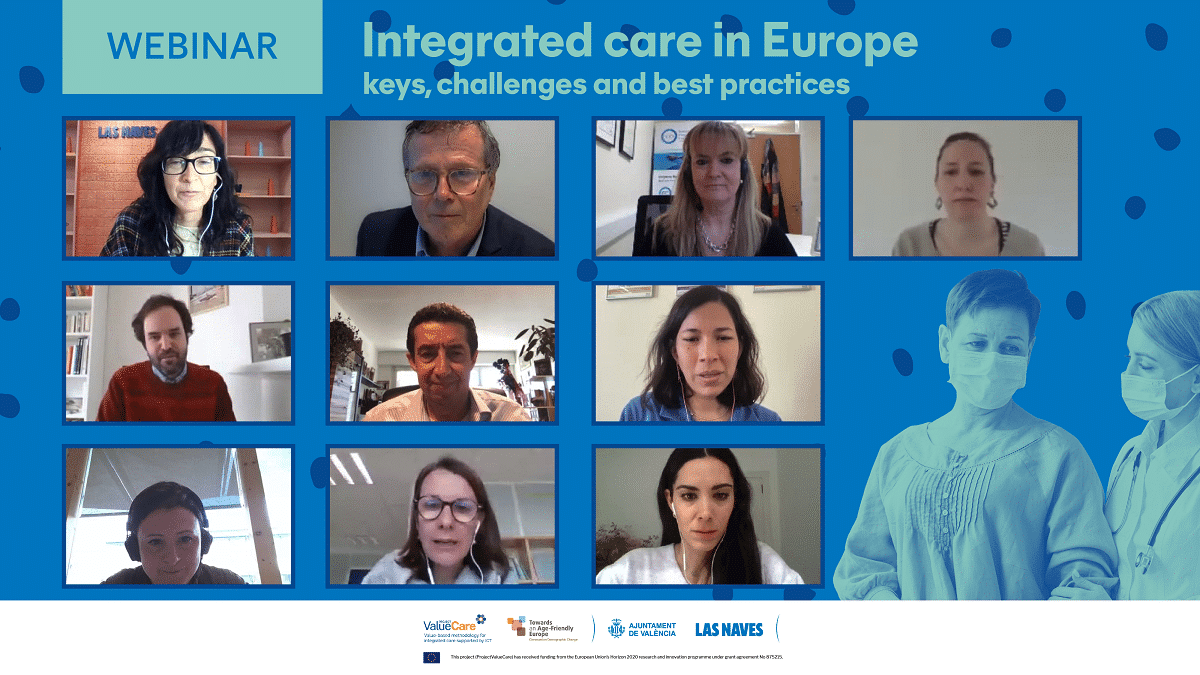The European ValueCare project brings together experts from different European cities to share and exchange good practices in the field of integrated care. The objective is to support a comprehensive and personalized approach in socio-health services.
Last 16 March, the event “Integrated care in Europe: Keys, challenges and good practices” presented the benefits that integrated care can have on older people, current challenges, strategies and practices successfully implemented from other European cities. More than 130 people attended the event, which was organised as part of the Valuecare project, by the Innovation Centre of the Valencia City Council, Las Naves, in coordination with the “Covenant on Demographic Change”.
Coordination is key
The discussions highlighted how essential an integrated approach to care is to accompany each person from the social and health perspectives and improve their well-being. An approach that cannot be unilateral, but rather one in which different agents from the public and private spheres intervene in a coordinated manner.
Our colleague, Borja Arrue, was invited to give an insight on the older person’s perspective when it comes to integrated care. AGE policy officer reminded how the fragmentation of integrated care has a negative impact on their physical and mental health, and how the care system should be more person-centred. He called for a shift from a perspective where older people are looked at only in terms of care needs to one in which older people with care needs are seen as full citizens.
Adapt services, not patients
In the same vein, participating expert highlighted the need to address the social and health needs of each patient. This means adapting the system to ensure the patient is “cared for and accompanied” in all facets, instead of the patients having to adapt to the services offered. That approach considers the different social, emotional and physical variables that affect each person.
A win-win approach
To conclude, the coordinator of the European ValueCare project, Hein Raat, detailed how the value-based care approach would result into shorter hospital stays, reduced use of health services, less stress on caregivers, more effective management of services and an improvement in the physical and cognitive functions of those in need of care services. It is about innovating not only to ensure longer lives, but also improve the quality of life.
Useful links:
- The session can be viewed again here.
- Read the press release of the ValueCare project
- For more info about the ValueCare project, visit our project webpage







